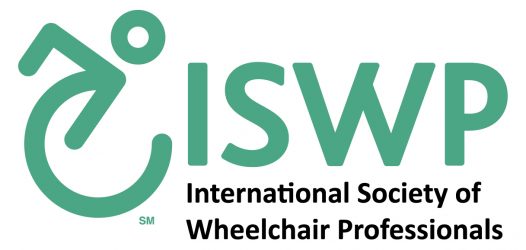Welcome to the Wheelchair International Network › Forums › Training Working Group Updates › My Positive Experience with a Tax Accountant in Brampton
- This topic has 4 replies, 3 voices, and was last updated 2 days, 21 hours ago by
Nathan Miller.
-
AuthorPosts
-
May 3, 2023 at 5:24 pm #27886
max marrie
ParticipantAs someone who has always struggled with filing taxes, I was apprehensive about seeking professional help. However, after a friend recommended a tax accountant in Brampton, I decided to give it a try. I am so glad I did!
From the initial consultation to the final submission, the tax accountant was knowledgeable, professional, and attentive to my individual needs. They took the time to explain complex tax laws in a way that was easy to understand and ensured that all my documents were organized and submitted on time.
Not only did I receive a stress-free tax season, but I also saved money by taking advantage of all possible deductions and credits. I highly recommend seeking the assistance of a tax accountant in Brampton and can attest to the positive impact it had on my overall financial well-being.
September 24, 2024 at 12:59 pm #32701abu islam
ParticipantThat’s great to hear! It’s amazing how much of a difference a good tax accountant can make. Their expertise not only eases the stress but can also help maximize your deductions. Thanks for sharing your experience—I might consider getting professional help for my taxes as well!
November 18, 2024 at 1:08 pm #34071Nathan Miller
Participant<p>Evidence-Based Population Health</p>
<p>In modern healthcare, the concept of evidence-based population health plays a pivotal role in improving community health outcomes. This approach involves applying evidence-based practices (EBPs) to design, implement, and evaluate strategies that address the health needs of entire populations. By combining data analysis, research, and actionable interventions, healthcare providers, policymakers, and organizations can enhance the health of communities effectively and equitably.</p>
<h3>What Is Evidence-Based Population Health?</h3>
<p>Evidence-based population health refers to the use of scientific evidence to guide decisions that affect the health outcomes of groups rather than individuals. Unlike individual patient care, which focuses on diagnosing and treating specific conditions, population health aims to understand and address broader health determinants, including nhs fpx 4000 assessment 4 social, economic, and environmental factors. By leveraging data from diverse sources—such as epidemiological studies, public health reports, and clinical trials—this approach identifies effective interventions that can improve health outcomes on a larger scale.</p>
<h3>The Importance of Evidence-Based Practices in Population Health</h3>- <p>Informed Decision-Making:<br />Evidence-based approaches ensure that health programs and policies are grounded in scientifically validated methods rather than assumptions or anecdotal information. This leads to more effective and efficient use of resources.</p>
- <p>Improved Health Outcomes:<br />By focusing on interventions with proven success, population health initiatives can achieve better outcomes, such as reduced disease prevalence, improved quality of life, and lower healthcare costs.</p>
- <p>Equity and Inclusivity:<br />Evidence-based population health also emphasizes addressing disparities by targeting vulnerable or underserved populations. Using data to identify at-risk groups enables tailored interventions that promote health equity.</p>
November 18, 2024 at 1:12 pm #34072Nathan Miller
Participant<h3>Key Components of Evidence-Based Population Health</h3>
- <p>Data Collection and Analysis:<br />Robust data collection is the foundation of evidence-based population health. Health professionals rely on diverse sources, such as electronic health records (EHRs), public health surveys, and global health databases, to analyze trends and identify priority areas.</p>
- <p>Identifying Evidence-Based Interventions:<br />Researching interventions that have been tested and proven effective in similar populations is a critical step. These could include vaccination campaigns, health education programs, or policy changes like tobacco control laws.</p>
- <p>Community Engagement:<br />Successful population health strategies often involve engaging communities in the planning and implementation processes. Understanding cultural contexts and involving stakeholders ensures that interventions are relevant and accepted.</p>
- <p>Evaluation and Adaptation:<br />Continuous monitoring and evaluation are essential to determine whether interventions are meeting their goals. This feedback loop allows for adjustments and improvements based on real-world outcomes.</p>
<h3>Examples of Evidence-Based Population Health Initiatives</h3>
- <p>Vaccination Campaigns:<br />Mass immunization programs, such as those targeting measles or COVID-19, rely on extensive evidence to demonstrate their efficacy in reducing disease spread and preventing outbreaks.</p>
- <p>Chronic Disease Management:<br />Population-level interventions for managing diabetes or hypertension, such as lifestyle modification programs and community nurs fpx 6011 evidence based population health screenings, are based on evidence showing improved outcomes with early detection and education.</p>
- <p>Health Equity Programs:<br />Initiatives aimed at reducing disparities in access to care, such as expanding Medicaid or implementing mobile health clinics in rural areas, are examples of data-driven solutions to address systemic inequities.</p>
<h3>Challenges in Implementing Evidence-Based Population Health</h3>
<p>While evidence-based population health offers numerous benefits, it also faces challenges:</p>- Data Limitations: Inadequate or incomplete data can hinder the ability to design effective interventions.
- Resource Constraints: Implementing large-scale health initiatives requires funding, trained personnel, and infrastructure, which may be limited in some regions.
- Resistance to Change: Communities or organizations may resist adopting evidence-based interventions due to cultural beliefs, mistrust, or lack of awareness.
<h3>The Future of Evidence-Based Population Health</h3>
<p>Advances in technology, such as big data analytics, artificial intelligence, and machine learning, are transforming the landscape of evidence-based population health. These tools enable more precise predictions, better resource allocation, and real-time monitoring of health trends. Additionally, the growing emphasis on interdisciplinary collaboration among healthcare providers, social scientists, and policymakers enhances the ability to tackle complex health challenges effectively.</p>
<h3>Conclusion</h3>
<p>Evidence-based population health is a powerful approach to improving health outcomes on a broad scale. By leveraging data, research, and community engagement, it ensures that interventions are effective, equitable, and sustainable. While challenges remain, ongoing innovations in technology and policy offer promising opportunities to advance population health and create healthier, more resilient communities.</p>November 18, 2024 at 1:13 pm #34073Nathan Miller
Participant<p>Evidence-Based Population Health</p>
<p>In modern healthcare, the concept of evidence-based population health plays a pivotal role in improving community health outcomes. This approach involves applying evidence-based practices (EBPs) to design, implement, and evaluate strategies that address the health needs of entire populations. By combining data analysis, research, and actionable interventions, healthcare providers, policymakers, and organizations can enhance the health of communities effectively and equitably.</p>
<h3>What Is Evidence-Based Population Health?</h3>
<p>Evidence-based population health refers to the use of scientific evidence to guide decisions that affect the health outcomes of groups rather than individuals. Unlike individual patient care, which focuses on diagnosing and treating specific conditions, population health aims to understand and address broader health determinants, including nhs fpx 4000 assessment 4 social, economic, and environmental factors. By leveraging data from diverse sources—such as epidemiological studies, public health reports, and clinical trials—this approach identifies effective interventions that can improve health outcomes on a larger scale.</p>
<h3>The Importance of Evidence-Based Practices in Population Health</h3>- <p>Informed Decision-Making:<br />Evidence-based approaches ensure that health programs and policies are grounded in scientifically validated methods rather than assumptions or anecdotal information. This leads to more effective and efficient use of resources.</p>
- <p>Improved Health Outcomes:<br />By focusing on interventions with proven success, population health initiatives can achieve better outcomes, such as reduced disease prevalence, improved quality of life, and lower healthcare costs.</p>
- <p>Equity and Inclusivity:<br />Evidence-based population health also emphasizes addressing disparities by targeting vulnerable or underserved populations. Using data to identify at-risk groups enables tailored interventions that promote health equity.</p>
-
AuthorPosts
- You must be logged in to reply to this topic.

